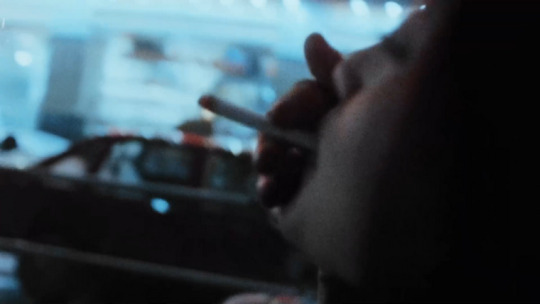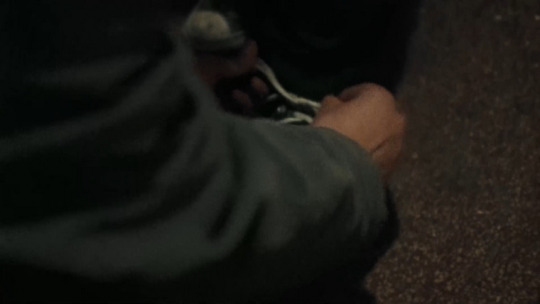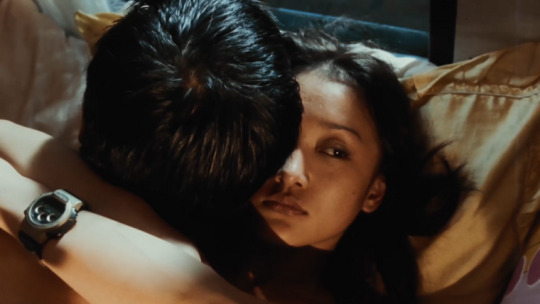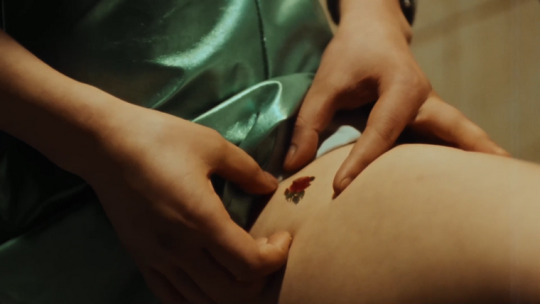Don't wanna be here? Send us removal request.
Text
Love is not primarily a relationship to a specific person; it is an attitude, an orientation of character which determines the relatedness of a person to the world as a whole… If a person loves only one other person and is indifferent to the rest of his fellow men, his love is not love but a symbiotic attachment, or an enlarged egotism. Yet, most people believe that love is constituted by the object, not by the faculty. In fact, they even believe that it is a proof of the intensity of their love when they do not love anybody except the loved person. Because one does not see that love is an activity, a power of the soul, one believes that all that is necessary to find is the right object and that everything goes by itself afterward. This attitude can be compared to that of a man who wants to paint but who instead of learning the art, claims that he has just to wait for the right object and that he will paint beautifully when he finds it.
Erich Fromm
1 note
·
View note
Text
Beauty is not a luxury, rather it is a way of creating possibility in the space of enclosure, a radical act of subsistence, an embrace of our terribleness, a transfiguration of the given. It is a will to adorn, a proclivity for the baroque, and the love of too much.
—Saidiya Hartman
1 note
·
View note
Text
I now respond: I claim responsibility for the Israeli crimes against humanity because I am an American and American monies made these atrocities possible. I claim responsibility for Sabra and Shatilah because, clearly, I have not done enough to halt heinous episodes of holocaust and genocide around the globe. I accept this responsibility and I work for the day when I may help to save any one other life, in fact. I believe that you cannot claim a people and not assume responsibility for what that people do or don’t do. You cannot claim to be human and not assume responsibility for the value of all human life. To Adrienne, I make this public reply: Your evident definition of feminism leaves you indistinguishable from the white men threatening the planet with extinction. Where you raise the accusation of anti-Semitism I accuse you: I accuse you of being anti-Palestinian. More, I accuse you of being anti-life. I refuse to assume responsibility for your actions and your inertia. I do not accept you as my people.
June Jordan (open letter to Adrienne Rich)
#israel#palestine#sionisme#zionism#gaza#june jordan#quotes#citations#adrienne rich#feminism#colonialism#lebanon
0 notes
Text
Each day I come to know even more clearly and urgently that we must commit to the fight for meaning. Not to concede the words, concepts, terms that we need to think and imagine and make livable lives.
— Christina Sharpe
1 note
·
View note
Text
Writers who try to do this work are told that our words don’t matter. When we demand a ceasefire and an end to occupation, we are told that those words are meaningless, that they do not prompt action, and that they cause tremendous injury (as in, to demand a ceasefire or to demand that the genocide in Gaza end is to cause injury and not to demand the cessation of injury). To name a person, institution, state, or a set of acts as racist or anti-Palestinian or antiblack is to cause injury. It is not the racism that injures, it is not the bullets and bombs that injure, it is the words that seek to name the injury—that name a murderous structure like apartheid or settler colonialism—that cause injury. Meaning is in crisis. And we are embroiled, everywhere, in contests over meaning—which are also contests of power, contests over living. And dying. — Christina Sharpe
#christina sharpe#writing#quote#citation#genocide#palestine#israel#antiblack racism#racism#colonialism
0 notes
Text
Craft tells us to modulate our words. Craft tells us that if “we” do it well enough, “they” will listen. Craft tells us to be silent about genocide.— Christina Sharpe
0 notes
Text
“Sometimes you don’t survive whole, you just survive in part. But the grandeur of life is that attempt. It’s not about that solution. It is about being as fearless as one can, and behaving as beautifully as one can, under completely impossible circumstances.” — Toni Morrison
0 notes
Text
„But sometimes she'd suddenly get sad. I had no idea why. I even didn't understand why sometimes she would disappear for days, all without saying a word. And then suddenly she'd show up again as if nothing had happened.“
37 notes
·
View notes
Text








Suzhou River (2000) dir. Lou Ye
105 notes
·
View notes
Text
“I choose to love you in silence… For in silence I find no rejection, I choose to love you in loneliness… For in loneliness no one owns you but me, I choose to adore you from a distance… For distance will shield me from pain, I choose to kiss you in the wind… For the wind is gentler than my lips, I choose to hold you in my dreams… For in my dreams, you have no end.”
—Rumi
8 notes
·
View notes
Text














The Double Life of Veronique (1991), dir. by Krzysztof Kieslowski
Weronika : I have a strange feeling. I feel like I'm not alone. Le père de Weronika : Alone? Weronika : Like I'm not alone in the world. Le père de Weronika : You aren't. Weronika : I don't know.
3 notes
·
View notes
Text
I am terrified by this dark thing That sleeps in me; All day I feel its soft, feathery turnings, its malignity.
0 notes
Text
I’ve always been drawn to films that allow the power of humiliation to overcome a character; my filmmaking in both ambition and practice have been shaped by my yen to explore this unspoken taboo. And I’ve discovered several role models in quest who shared my goals, my ethos, even my gender. When I looked at the debuts of the femme filmmakers I admired, I found that many of them wrote, directed, and starred in the projects that helped launch their careers. So I did it as well. And I did find some validation with my first feature Actual People (2021), in which I play a “faildaughter,” a young and often middle-to-upper-middle-class femme protagonist who is a bit of a virtuoso when it comes to self-humiliation. When confronted with challenges (ones that are notably padded by a level of financial security), the faildaughter will zig when she should zag, have weird and sad sex when she should abstain, and quit like a coward when it’s not even that taxing to persevere (the most popular example is probably Phoebe Waller-Bridge's eponymous Fleabag, whose adventures in incompetence were not only compelling, but relatable). At the beginning of a filmmaker’s career, there are fewer eyes on their projects and therefore little to no expectations, bringing about the chaotic combination of more creative freedom with few people who want to be involved. This leads to some artists, either brazenly or defiantly, jumping into the role of the “triple threat,” meaning that they write, direct, and star in their own film (I’m co-opting this phrase from theater, in which the term refers to a performer who can act, dance, and sing). (...) There’s the argument that in a sexist landscape people don’t necessarily want women to succeed, so it’s easier for a woman to make work that debases herself before someone else can on their own terms. There is perhaps some truth to that, but there’s a big difference between self-flagellation that elicits pity and vulnerability in the name of self-empowerment. These films, which I believe succeed most magnificently when they make me cringe, squirm, die a little inside, and rebirth me into a more receptive and courageous thinker, are definitely not interested in pity. They demand to be on an equal playing field of empathy. The vision feels more sacred, like modern martyrdom. To put yourself so vulnerably on screen, and to do so knowing there is a high possibility of condemnation, is a sacrifice, but at least it’s one that the artist is in control of. Unfortunately, unfairly, maybe being a woman means having a body always on the precipice of some kind of sacrifice, and you can either accept it or let someone else take control of the ritual. The lore of legendary filmmaking is rife with horror stories of women who allowed a male director to take control of their body and psyche. They gave themselves up for a vision that was deemed greater than their individual suffering, but the films don’t necessarily honor this unnecessary loss. If a film actually necessitates a sacrifice from a woman, shouldn’t she make it for the sake of her own vision and ideals?
#feminist cinema#cinema#movies#film#film analysis#mubi#quote#citation#male gaze#triple threat#Kit Zauhar#humilitation
1 note
·
View note
Text
"It’s interesting that wisdom often arrives as a warning. I think it’s often something that those in the center, those in power, never know; that before you leave the house, in order to achieve yourself — one sends one’s children to school in order to fulfill their dreams. And in order to do that, you have to be warned that “there is a strike against you, by the way, so sink in. Fade away.”
And I think that’s the great crisis of the first and second generation. The first generation made it here, and to live at all is such a privilege that they’re happy, and even encourage you to put your head down, work, fade away, get your meals, and live a quiet life. And I think the second generation, the great conundrum there, the great paradox, is that they want to be seen. They want to make something. And what a better way to make something and fill yourself with agency than to be an artist? So: so many of us immigrant children end up betraying our parents in order to subversively achieve our parents’ dreams." – Ocean Voung (On Being, 2020)
6 notes
·
View notes







